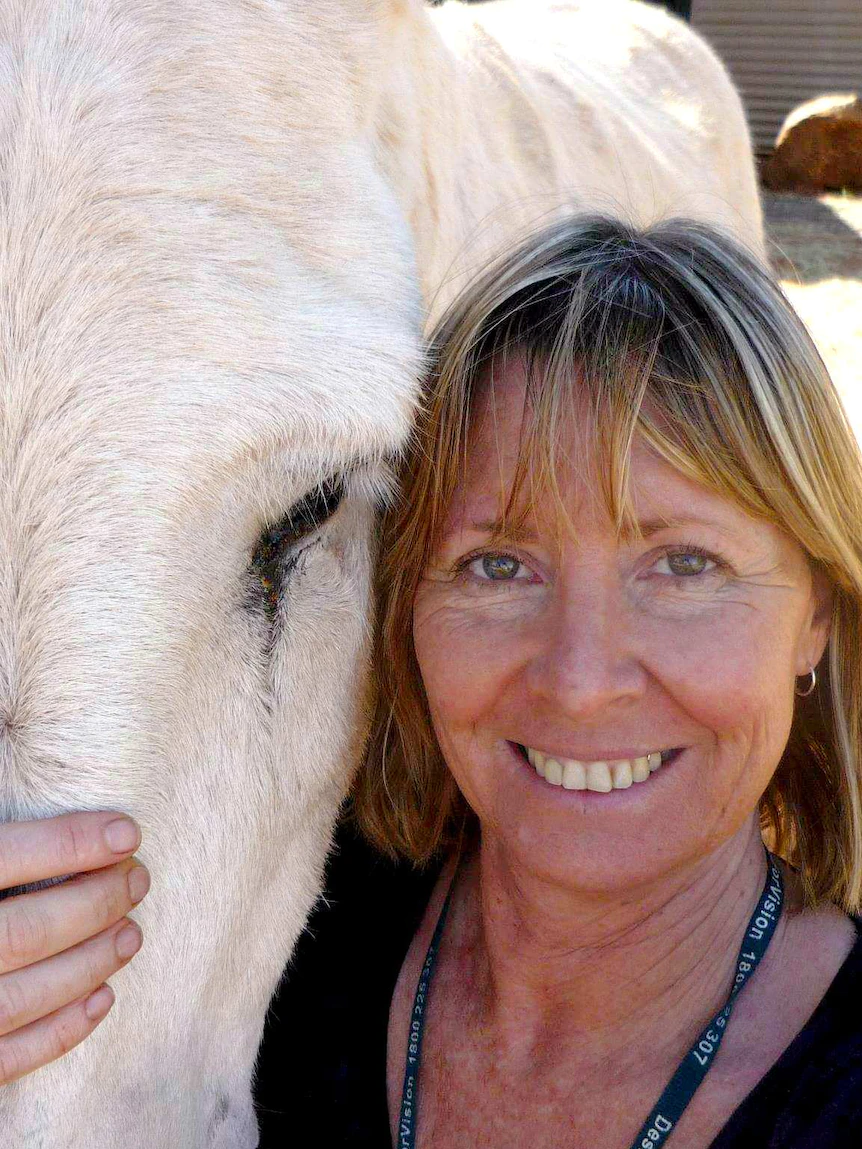The SA government has agreed to implement seven of the 12 recommendations made by the deputy state coroner in the wake of the murder of outback nurse Gayle Woodford.
But the government has rejected a call to put a police station in the remote community where she lived and worked.
Key points:
- Gayle Woodford was on call alone at Fregon, in the APY Lands, on the night she was abducted, raped and bashed to death by Dudley Davey
- The coronial inquest into her death concluded earlier this year
- An independent review earlier this year found health workers were still being put at risk
Ms Woodford was murdered by Dudley Davey in March 2016, at Fregon in South Australia’s APY Lands.
The 56-year-old nurse, who was employed by the Nganampa Health Council (NHC), was on call alone on the night she was abducted, raped and bashed to death after being lured by Davey.
In 2017, Davey was sentenced to life in prison with a non-parole period of 32 years for Ms Woodford’s rape and murder.
A coronial inquest into her death condemned the lack of safety provided to on-call remote area nurses, the lack of police presence in remote communities, and Davey’s release from prison prior to the attack.
Earlier this year SA’s Deputy State Coroner handed down 12 recommendations, including that the NHC ensure on-call staff are always accompanied, and that patients no longer attend nurses’ homes.
In a report tabled in parliament on October 28, the state government gave its response to the recommendations.
It agreed to adopt seven of the proposals, including changes to general police orders.
The government also gave in-principle support to introducing legislation to impose obligations upon SA Police, the Parole Board, and the Department of Correctional Services (DCS) to advise whether an application should be made to detain prisoners for longer periods.
“In drafting these amendments, ongoing consideration will be given to the resourcing of SAPOL, DCS and the Parole Board, to ensure they are sufficiently resourced to enable them to carry out any statutory obligation satisfactorily,” the report said.
Permanent police presence in Fregon rejected
However, a recommendation to have police officers living in and stationed at Fregon was rejected.
“SAPOL is also investing approximately $1.5 million in a new facility in Fregon … to support the new staffing model and policing presence. This will enable police patrols to spend more time in the community and stay overnight as required.”
The Deputy Coroner also recommended that anyone who is the subject of an extended supervision order should not be allowed to live in or otherwise be present on the APY Lands.
But the state government said that measure did not need to be implemented, as the Criminal Law (High Risk Offenders) Act already allowed it to happen on a case-by-case basis.
The government did agree to consult with APY communities and relevant authorities about measures regarding the release of people at high risk of serious offending, who may not be captured by current laws, to the APY Lands.
Two recommendations to ensure on-call staff are always accompanied, and that patients no longer attend nurses’ homes, were directed to the NHC, a non-government agency.
Gayle’s Law was passed in 2019, in response to Ms Woodford’s death, aiming to protect health workers in remote areas.
An independent review into the law earlier this year found there are still some times and places where health workers are at risk.
Flinders University professor Robyn Aitken’s report made 18 recommendations to increase the safety of health practitioners in remote South Australia and broaden the operation of Gayle’s Law.
Of the 18 recommendations, SA Health has now supported 13 in full or in principle.
It has “noted” a recommendation to introduce new rules to ensure that on-call nurses are always accompanied by a second person, but has not committed to do so.




